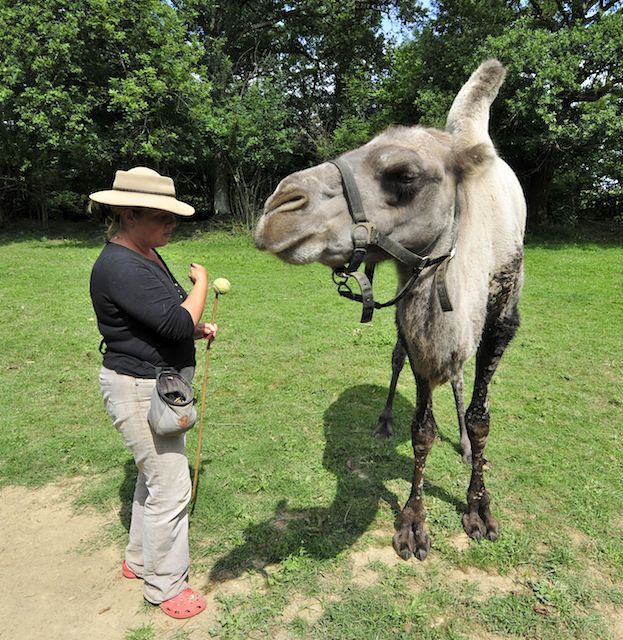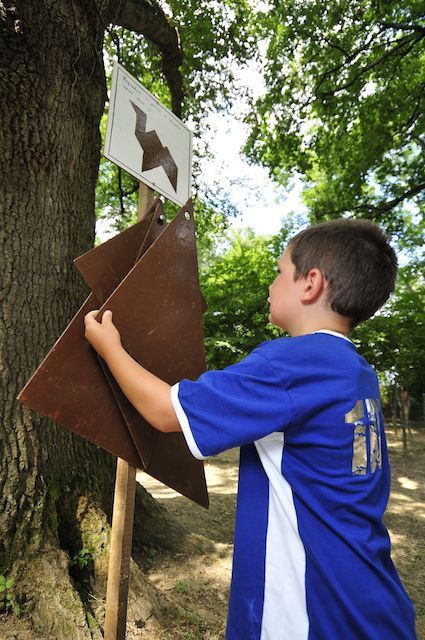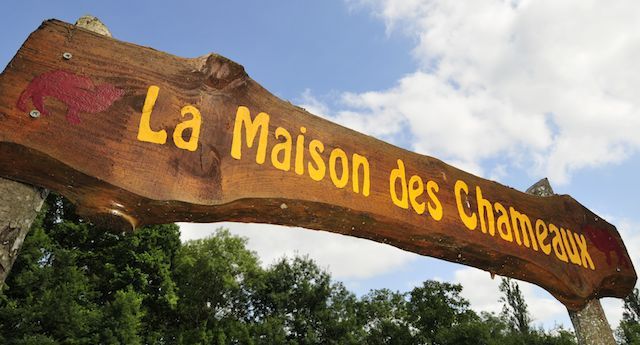
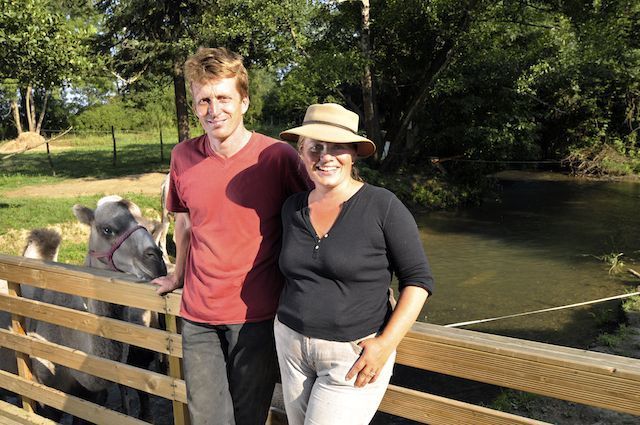
Deep in the heart of the sleepy Hautes Pyrenees countryside amid swathes of sunflowers and vines, walkers enjoying the quiet and tranquility, have been known to look rather surprised when they come across Sarah Bird and her camels, also out for a stroll! Camel trekking is nothing new in some parts of the world, but it is not normally something associated with southern France. However, since the opening of La Maison des Chameaux in 2007, the residents of Castelnau Riviere Basse, have grown quite used to their new neighbours.
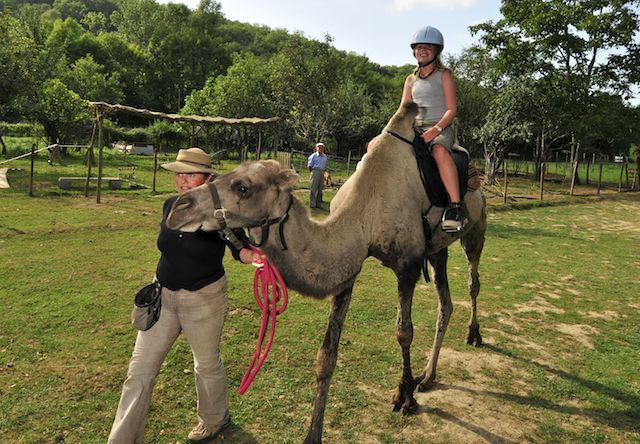
Paul and Sarah Bird moved to France with their sons Oliver and Elliot in December 2006. Having found a suitable property, by March 2007 they had completed the sale and four months later they had somehow managed to open for business. They had no real idea of how popular the camel farm was going to be. “We set ourselves a target of getting twenty people through the door on a daily basis” reveals Sarah “ but even from the very start, the average was far higher than that!”
Sarah and Paul worked in marketing and management development in Dubai before moving to France. It was there that they fell in love with camels. Sarah was already a keen horse-woman and was keen to expand her skills to include camel training. She explains “we are the first people in the world to clicker train camels which means that all training is done using positive reinforcement techniques. When we first got the camels, they were completely wild. We couldn’t even get near them, let alone touch them. One day one of the four ‘girls’ came up to me as I was eating breakfast and took a piece of baguette and strawberry jam from me. After that we didn’t look back”. It is a huge testimony to Sarah and Paul’s training methods that just months later, the camels are all so friendly and clearly love human attention.
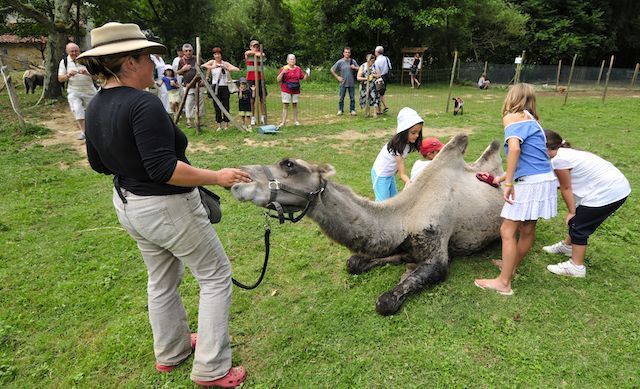
The camels all originate from Russia and were shipped via Bulgaria by a contact in the camel world, before being bought by Paul and Sarah. Sadly all four had already been branded and Sarah is looking forward to the birth of baby camels on the farm, who will not be disfigured in this way. After borrowing a male camel, they are eagerly awaiting the patter of small camel pads. Sarah speaks French to the camels and explains “ When I arrived I could just about order two beers! Speaking French to the camels is good for me and the majority of people who come here are French so it makes sense. The first word the camels learn is bonjour, followed by allez, arrete, recule and then the all important coucher! During the afternoons we give displays of all the work we have done with our animals and all the demonstrations are done in French. Unless of course we have English visitors as well!”
Children love being able to get up close to the camels and brush them. The farm gets lots of repeat bookings and Sarah finds that often grandparents bring their grandchildren, then return a couple of weeks later, this time without the grandchildren but with friends of their own age! One of Paul’s first tasks was to install a bridge over the river that flows through the four hectare property. This means that visitors can really interact with the camels as the camel's heads are at the perfect height to be caressed.
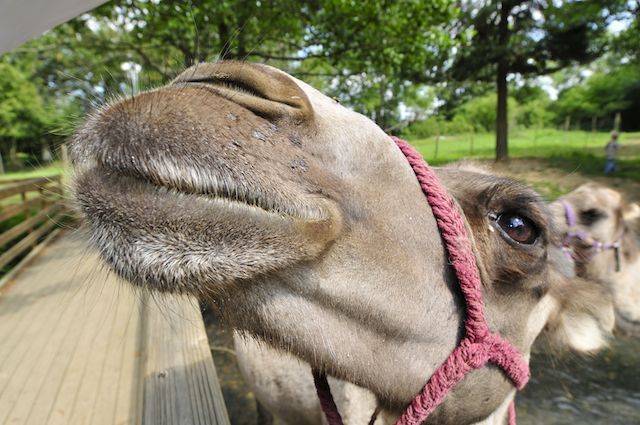
The farm has been a big hit with school visits. Sarah explains “ we sent out a mail-shot to local schools in our first year and were amazed by the response. The take up rate has been really good and word is starting to get round that we provide an excellent, educational day out for just 6€ per child. We have also designed educational packs for teachers that can be used before or after the visit. These contain over three hours of lesson plans and teaching aids. Our first coach party of 80 children came shortly after we had opened and was pretty daunting. Waving goodbye to them at the end of a long and successful day was one of the high points and gave our confidence a real boost. These days its a lot easier; we feel that we really know what we are doing and we find it all much easier as a result.”
Whilst the camels are the star turn, there is also Carla the ‘trick’ miniature pig who was rescued from an apartment where she was being kept along with two sheep. In addition, there is a goat agility display and performing llamas and alpacas. Goats, rabbits, hens and ducks wander freely around the farm making this a very popular destination with all ages.
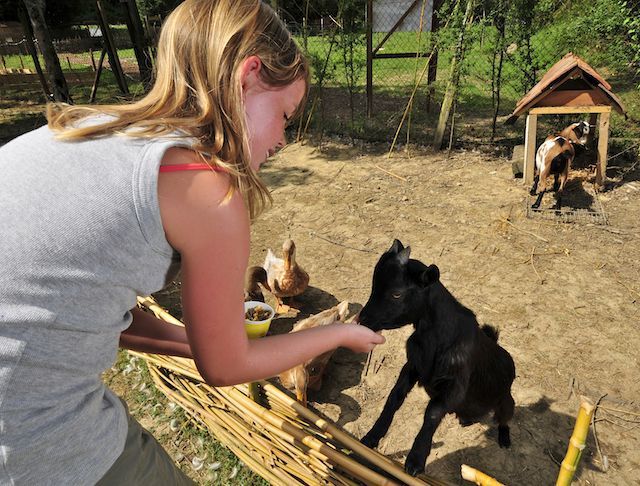
The farm’s success is due in no small part to the Bird’s determination to put the hours in. It is open all year round with restricted opening hours in winter. From April onwards, when their season starts, the farm is open daily through the holidays apart from Tuesday from 12 until 6 pm. During the winter when most people would be enjoying the break, the couple run courses for those who want to learn about clicker training and its benefits. Sarah explains that she “copes with the hours and being ‘on display’ by making sure we have Tuesdays off every week. And we always stop for lunch! We have become very French in that respect. Sometimes we get British visitors who are really taken aback by the fact that nothing happens here between midday and two but all our French guests see it as quite normal. They tend to take themselves off to the woods with their picnics and come back at the start of the afternoon for the demonstrations. It also helps that we live on site so at six when we close, we are at home. We don’t have a long and tiring commute and within no time at all, we will be relaxing with the children and a well deserved glass of wine!”
The willingness shown by Sarah and Paul to work hard, has been recognised by their French neighbours. As a result they have received a great deal of help and support; one neighbour presented them with a beautiful handmade wooden sign at their opening ceremony and others have offered them hay for the animals.
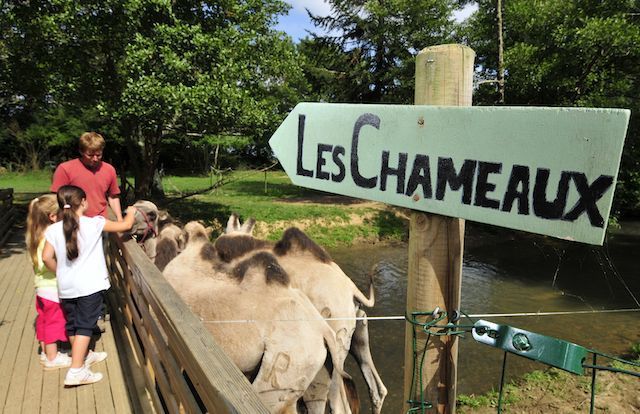
La Maison des Chameaux offers a variety of camel riding experiences. These range from a short ride around the centre to half day treks culminating in an ‘apero’ of local Madiran wine. The farm also offers picnic rides with the llamas providing pack support, wine tasting rides and a new service for this year, a wedding package where the bride and groom can arrive at the reception on a camel! Using their experiences in the business world that they acquired before coming to France, Sarah and Paul are also offering a variety of management development, team building and coaching packages and they hope that this area of the business will continue to grow. With thoughts of introducing camel milk as a nutritional product to France, I wondered whether they ever plan to slow down. Sarah laughingly replied “ well, camels live for around 45 years and these are quite young, so hopefully we can all retire at around the same time”. Howvere, they show no sign of slowing down, let alone retiring. Having got the camel farm up and running, created a sensory garden and numerous other visitor attractions, Paul is now a fully qualified, registered and insured electrician http://electricien.webs.com/ who can take on anything from the smallest of electrical jobs to a full rewire. He also offers an emergency and out of hours call out service covering the 32, 64, 65 and 40 departments.
Camel facts:
Camels can exist for several months without drinking water during seasons when the plant moisture content is high. However, they cannot survive drought conditions where there is no surface water and the moisture content of plants is low.
Wool is an important camel by-product in many camel producing countries. An average wool yield from male camels is 3.28 kg and 2.10 kg from females.
The camel’s large mouth contains 34 teeth that can be used as a weapon. They have two toes on each foot with a broad pad that connects them. The pad spreads when the foot is placed on the ground. The pad supports the foot in much the same way that a snowshoes helps when walking on snow. When they walk or run, this cushioned pad makes almost no sound.
Fact File:
www.lamaisondeschameaux.com
0562333624
Open daily in season from 11-6, out of season please check the site for opening hours.
Admission charges: adults 7.5€, children 6€
Open to groups and parties at any time by prior appointment
Did you know?
Camel milk has is claimed to have huge health benefits for those with diabetes and heart disease.
It is rich in vitamins B and C, lower in fat and contains ten times more iron than cow’s milk.
It can be made into butter, yoghurt and even cheese.
In some countries it is considered an aphrodisiac but is also acknowledged to be an acquired taste!
Paul and Sarah currently have four Bactrian camels and have started a breeding programme.Wild Bactrian camels are amongst some of the world’s most endangered species; there are just 950 left in the world.
Words - Catharine Higginson
Photos - James Higginson
